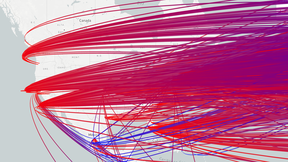Aalto computer scientists in SEMANTiCS 2024

Four new papers related to Finnish Digital Humanities research of the SeCo group, Aalto University and University of Helsinki (HELDIG and HSSH), have been accepted for the SEMANTiCS 2004 conference, Amsterdam, Sept 17-19, 2024.
Accepted papers
In alphabetical order. Click the title to see the authors and the abstract. Links to the papers open on different website.
Authors
Eero Hyvönen and Jouni Tuominen.
Abstract
This paper argues, based on lessons learned in developing several in-use Linked Open Data (LOD) services and applications, that biggest challenges of re-using LOD are missing data schemas, formal quality of data, and trust on the correctness of data with respect to the real world. To encourage data publishers to address the issues, three more stars are proposed for the classical 5-star model coined by Tim Berners-Lee. The proposed model is supported by the Linked Data Finland platform, a living lab environment in use supporting LOD publication for data-driven research and application development.
Authors
Annastiina Ahola, Eero Hyvönen, Heikki Rantala and Anne Kauppala
Abstract
The OPERASAMPO is a Linked Open Data (LOD) service and seman- tic portal for searching, browsing, and analyzing information related to historical opera and music theatre performances performed in Finland during 1830–1960. The key data originates from the Reprises database of the Sibelius Academy, Fin- land. This paper presents the process of transforming the original data into LOD and the data model created for it, data maintenance, as well as the portal and data service for utilizing the data. The novelty of OPERASAMPO lays on its focus on studying data about the musical performances and persons involved in different roles using faceted search and browsing combined seamlessly with data-analytic tools for Digital Humanities research. The service was published for open use in October 2023.
Authors
Eero Hyvönen, Hien Cao, Rafael Leal, Heikki Rantala and Aki Hietanen.
Abstract
This paper demonstrates how Linked Open Data (LOD) can be used for publishing, searching, and analyzing legislative documents in an international cross-broader multilingual setting. Cross-border ser- vices are needed, e.g., when one is moving from one country to another and looking for regulations for immigration, heath care, education, etc. in one’s own language. The main novelty of the FinEstLawSampo demon- strator presented, based on legislation from Finland, Estonia, and the EU, is the provision of heterogeneous cross-country, multilingual, dis- tributed legal data through multiple application perspectives for faceted searching, browsing, and for data analysis in legal informatics.
Authors
Heikki Rantala, Petri Leskinen, Lilli Peura and Eero Hyvönen.
Abstract
This paper presents how relations or associations between entities, such as persons and places in cultural heritage knowledge graphs, can be searched and analyzed using faceted search and visualizations. Faceted search using well-formed ontologies allows search and comparison of relative numbers in associations of groups of entities, such as artists from different countries, and can reveal patterns of interest in the data. This papers presents examples of how this can be done in practice, how the associations can be conceptualized in different ways that affect the performance of the search, and how the associations can be analyzed. The concept of faceted relational search is examined through case studies including searching relations in collections of biographies from various European countries, relations in the Union List of Artist Names (ULAN) thesaurus, and relations formed by links between Wikipedia pages of persons.
Department of Computer Science
We are an internationally-oriented community and home to world-class research in modern computer science.
School of Science
Science for tomorrow’s technology, innovations and businesses

Read more news

Learning to slow down: cold-water swimming benefits explored in new study
Swimming in cold water offers a temporal slowdown, promoting stress management and mental clarity that lingers long after the experience, says research from Finland.
The proxy server for remote access to e-resources is changing
If you have problems using e-resources, try accessing the e-resource using VPN connection.
A sustainable city is also age-friendly
Cities must involve older adults more strongly in the planning of the urban environment.






